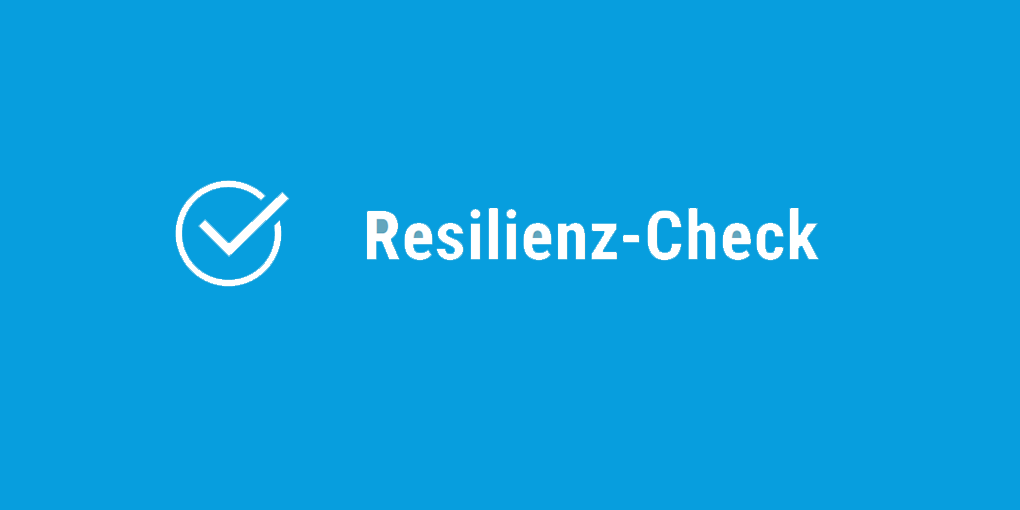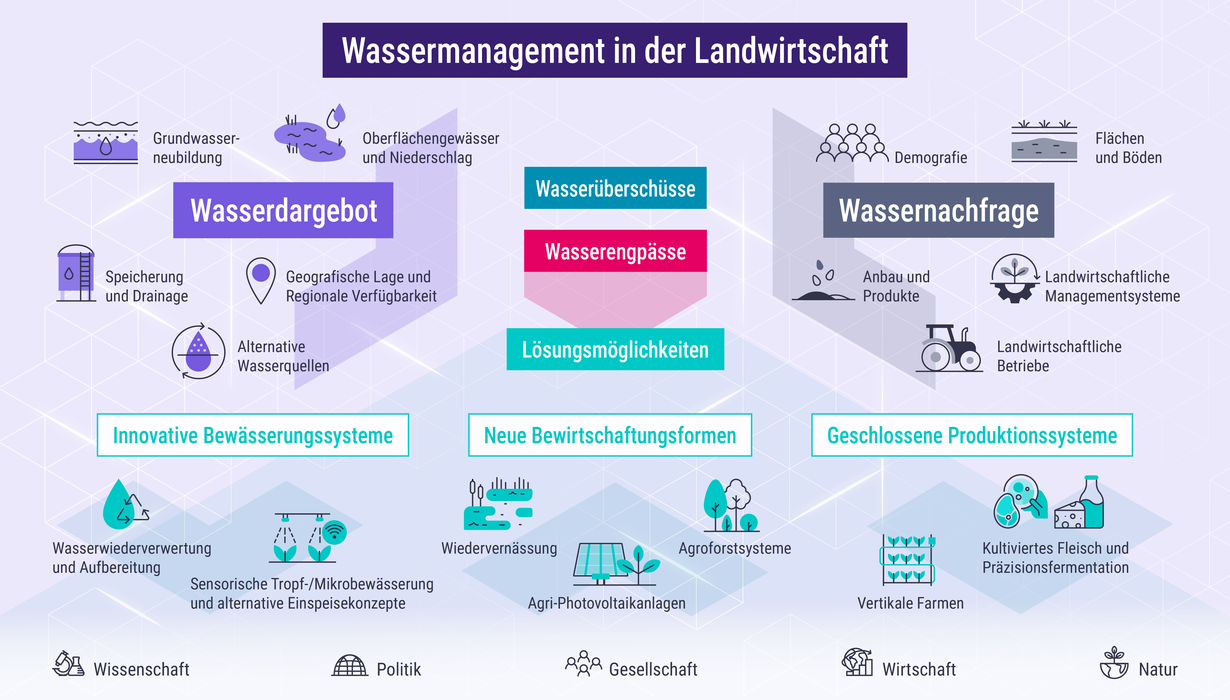
Resilience check
- Project team:
Michaela Evers-Wölk, Roland Nolte, Ingo Kollosche, Nona Bledow, Maren Eickhoff, Carolin Kahlisch, André Uhl
(with further support in each case related to the technical infrastructure of the system)
- Thematic area:
- Startdate:
2024
- Enddate:
2028
sprungmarken_marker_4357
Background, objectives and results
Based on the results of the Resilience radar, which are published in the Foresight Report, an infrastructure-related focus topic is selected each year and subjected to a resilience check in the in-depth phase of the extended foresight process.
The resilience check focuses on topics that are considered particularly promising for strengthening resilience in scientific discourse. On this basis, development potentials are analysed, systemic risks in future scenarios are identified and viable strategies for strengthening resilience are derived.
The focus topic for the in-depth analysis in the resilience check is selected by the TA rapporteur group. This ensures that challenges of particular scientific and political relevance are addressed.
Preliminary results of the resilience check are presented at a public event entitled ‘TA im Dialog’ (TA in Dialogue) at the German Bundestag and discussed with members of parliament and other stakeholders from academia, business and society. Feedback from this dialogue is incorporated into the final version of the resilience dossier, strengthening its practical and political relevance.
Methodological approach
Stakeholders from science, business, politics, administration and civil society are involved in a structured analysis and scenario process. The Resilience check takes nine months to complete and consists of the following three steps
1. Mapping the system
The first step is to identify and structure the relevant influencing factors for the key issues of the infrastructure system. For this purpose, moderated digital "round tables" are organised with external experts from science, business, politics and administration. The result is a dynamic system picture in visualised form.
.
2. Scenario development
The next step is to develop plausible future scenarios and identify vulnerabilities that arise against the backdrop of systemic risks. To this end, future projections are developed on the basis of the identified key factors and raw scenarios are derived. The consequences of disruptive events are then analysed in an expert workshop. The step concludes with a short description of the future scenarios.
3. Policy analysis
The future scenarios are then systematically analysed to identify both vulnerabilities and opportunities to strengthen the resilience of the infrastructure system. In a structured process, policy options, approaches and strategy elements are developed. For this purpose, a moderated event will be organised, which will bring together scientists, experts from the respective maintenance practice of the infrastructure system and selected representatives of the infrastructure system.
Resilience Check 2024/25: Water managment in agriculture
This year's Resilience Check focuses on water management in agriculture. In the face of climate change, increasing drought and uneven rainfall distribution in Germany, agriculture must find new ways to cope with changing conditions. Efficient irrigation techniques, new forms of farming and closed-loop production systems offer promising approaches to making better use of water resources and making agriculture more resilient.
As part of the public event "TA im Dialog: Zukunftsfähiges Wassermanagement in der Landwirtschaft" on 27 November 2024 in the Paul-Löbe-Haus, the interim results of the Resilience Check 2024 will be presented and discussed with experts from the scientific community, members of the German Bundestag and other societal stakeholders.

Public debate in the Bundestag on 27 November 2024
MoreResilience Dossier 2025: Water management in agriculture
The resilience dossier published on our foresight platform on October 20, 2025 presents the results of the resilience check on the focus topic "Water management in agriculture". The topic was selected by the Rapporteur Group for Technology Assessment based on the analyses of the 2023/2024 Resilience Radar. Its findings on the agricultural and food infrastructure system have shown that Germany is highly vulnerable to systemic risks such as global warming and increasing weather extremes. Agriculture will therefore have to find new ways of dealing with the changing conditions.
Efficient irrigation techniques, new forms of cultivation and closed production systems are considered strategic areas with particular potential for strengthening resilience in agriculture. They offer promising approaches for making better use of water resources and making agricultural systems more resistant to negative environmental influences. Against this backdrop, the 2024/2025 Resilience Check focuses its analysis specifically on these three strategic areas in order to identify and evaluate their resilience potential in a differentiated manner.

Results from the resilience check.
Go to the Foresight platformResilience check 2025/26: Cybersecurity in the research process
This year's resilience check focuses on cybersecurity in the research process. The increasing digitisation and networking of research institutions – as illustrated in the trend cluster Digitisation of the Research World – significantly increases the vulnerability to cyber threats. Data leaks, targeted cyber attacks or espionage not only jeopardise confidential research projects, but also the integrity of scientific findings. Targeted cyber security strategies are essential to strengthen the resilience of the research system.
The focus is on strategic topics related to the protection of sensitive research data, in particular its secure storage, processing and transmission, including in the context of international cooperation. Innovative approaches to strengthening cyber security competencies in research institutions are also being considered. Key measures range from AI-supported attack simulations and security-by-design methods in research projects to effective incident response management to minimise damage from cyber incidents. These include institutional emergency plans, the use of AI-supported intrusion detection systems and cross-sector cooperation, e.g. with government security agencies.
